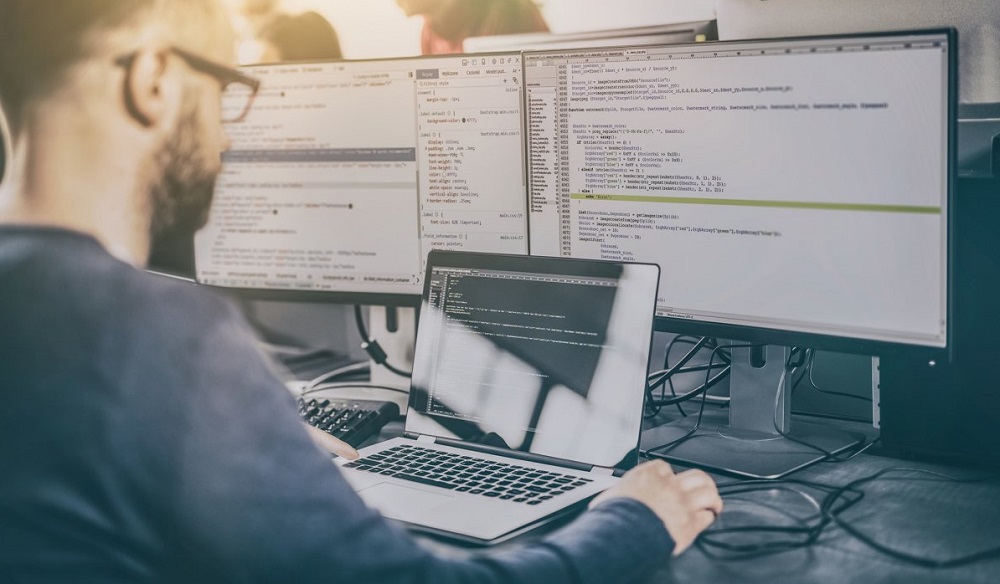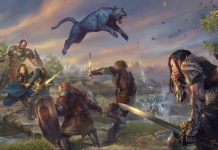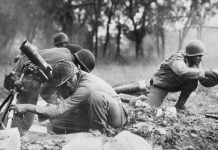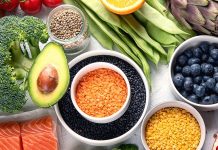The world of computer programming, algorithms, and machine learning as the natural world once felt to our ancestors. Some people are even so intimidated by the subject that they refuse to investigate it any further, and we feel that’s quite a shame. The world of computer science is complex, without a doubt, but it’s also one of the most rewarding areas to develop mastery.
In our world and time, nothing is more important than computer fluency. The more you know about these machines that are in charge of the world, the better off you are. That’s why we’ve decided to delve into the subject and find out the best computer science books currently available. Regardless of your starting level—there are books on this list that can help anyone develop better computer mastery.
Quick Summary of the Best Computer Science Books
- Best Overall
The Art of Computer Programming, Volumes 1-4A Boxed Set (Amazon) – Review - Best For Beginners
Everything You Need To Ace Computer Science & Coding (Amazon) – Review - Best History Of Code
Code: The Hidden Language of Computer Hardware and Software (Amazon) – Review - Best Computer Science Interview Prep
Cracking the Coding Interview: 189 Programming Questions and Solutions (Amazon) – Review - Best Computer Science Study Guide
AP Computer Science A: With 6 Practice Tests (Amazon) – Review - Best Introduction To Computer Programming
Computer Programming for Beginners: Fundamentals of Programming Terms and Concepts (Amazon) – Review - Best Introduction To AP Principles
Computer Science Principles: The Foundational Concepts of Computer Science (Amazon) – Review - Best Book For The DIY Coder
The Self-Taught Programmer: The Definitive Guide to Programming Professionally (Amazon) – Review - Best Affordable
Machine Learning For Absolute Beginners: A Plain English Introduction (Amazon) – Review
Best Overall: The Art of Computer Programming, Volumes 1-4A Boxed Set
Even though there’s a multitude of books on computer science, most of them are aimed at the beginning or intermediate student. This one, however, is designed to be used by a more advanced student. Contained all in one place is everything that the student is going to need to sharpen their computer skills. Everything from the fundamentals of algorithms, to seminumerical algorithms to sorting and searching to combinatorial algorithms, is discussed and presented in an easy-to-digest format that most of our readers are going to appreciate.
The beginning of the first book primes the reader with the math needed for the algorithms, before an introduction to the assembly language is presented. Volume two then covers floating-point calculations and then plunges headfirst into algorithm theory. The rest of the volumes then proceed from there.
This book is written by Donald E. Knuth, a pioneer of algorithm and programming techniques known the world over. He is well known for his invention of the TEX and Metafont systems for computer typesetting, and over 160+ papers and 26 books on the subject of computer science. He is the Professor Emeritus of the Art of Computer Programming At Stanford University. And he has created this volume of programming knowledge that many people consider to be nothing short of a work of art.
Best For Beginners: Everything You Need To Ace Computer Science & Coding
The name of this book was too big to place in the title of this review, but we can state it here. This book is called Everything You Need To Ace Computer Science & Coding In One Big Fat Notebook, and that pretty much sums up what the reader can expect from it. Although this is a very basic book, it gives the reader an excellent introduction to the subject. As the book describes itself, it’s like the notes from the smartest kid in the class that was double-checked by an award-winning teacher. All of this makes it a great book for high school students who want to learn computer science and coding.
What can the reader expect to find in this book? Well, they can expect to find just about everything they need to gain an understanding of the subject matter. This book will help the reader better understand computer systems, start reading and writing various programming languages, and start using not only basic algorithms but also Boolean expressions. Other information that can be found in this book includes storing information, collecting and using information; dealing with variables, conditional statements, loops, and events; and handling data and operators. And that’s just a few of the subjects that can be found in this informative basic introduction to the subject.
Best History Of Code: Code: The Hidden Language of Computer Hardware and Software
This book is unlike many of the other ones that might be on this top list. That’s because it’s not designed to teach computer science, or more specifically coding, to the reader. Instead, it’s designed to give the reader a history of where code is and why it’s designed the way that it’s designed. It’s a close look at machine languages that give the reader a glimpse into how coding came into existence in the first place. Just by reading through this book’s various chapters, the reader will learn a wealth of information about how personal computers, digital media, and ultimately, the Internet works.
It doesn’t matter at what level you come at this book, it’s designed to charm you and to perhaps awaken the technophile within all of us that we didn’t even know existed. This book begins with the most basic of codes and ciphers that mankind used through the ages, moves through braille and binary codes, and then moves on to relays and telegraphs. It also explains quite well automation, two classic microprocessors, operating systems, and logic gates. All of this is written in an easy-to-read language that we feel most people will appreciate, regardless of whether they’re new to coding or are a certified professional.
Best Computer Science Interview Prep: Cracking the Coding Interview: 189 Programming Questions and Solutions
When we first came across this book, we had some reservations about including it on this list. That’s because it’s not a book that gives software engineers any information they don’t already know. But we decided to put this book on this list anyway because we feel that it gives the reader some great strategies for making it through a job interview. It’s a book that’s chock full of the most commonly asked programming interview questions. It starts with the absolute basics and then works towards some very tough algorithm problems.
Each of these questions includes a walk-through that allows the reader to solve the problem themselves, as well as hints on how to solve each one. Also included in this ook are five proven strategies to handle algorithm questions, extensive coverage of data structures, O time, and data structures, and a quick look at how companies such as Facebook and Google hire developers. There are even techniques included in this book that deal with what many consider to be the softer side of the interview process—behavioral questions.
Best Computer Science Study Guide: AP Computer Science A: With 6 Practice Tests
Designed to handle both the 2020 and 20121 academic years, Barron’s AP Computer Science A is exactly what students need to study for advanced placement tests. This book provides the reader with a course outline and questions that will help them sharpen their skills. Some of the things that can be found in this book include five practice tests, a diagnostic test, strategies for handling the AP Computer Science A exam, a glossary of useful computer terms, and a comprehensive content review.
This book is written and organized by Roselyn Teukolsky, a writer who has an M.S degree from Cornell University and has been teaching computer science and programming since 1980. She has published articles in both the National Council of Teachers of Mathematics Yearbook and in the Mathematics Teacher. She has also received the Edyth May Sliffe Award For Distinguished Mathematics Teaching. And on top of that, she has also received the Alfred Kalfus Distinguished Coach Award from the New York State Math League. Taking all of this into consideration, we feel that this is one of the best computer science books for AP prep work.
Best Introduction To Computer Programming: Computer Programming for Beginners: Fundamentals of Programming Terms and Concepts
Even though this book might not delve deep enough into individual programming languages, we do believe that it’s the perfect primer for someone looking for an introduction to programming but haven’t decided on which programming languages they would like to learn. It’s a book that provides a very basic explanation of key concepts, although we do have to admit that at times the book didn’t provide enough detailed information on certain topics. With that said, we think that most people will get quite a lot out of reading this book.
Inside of its cover, the reader will find an explanation of what makes programming languages, the history of programming, some of the more popular programming languages available, the different types of programs, program statements, and how programs are executed. The reader will also find information on file data storage, error handling, best design practices, variables, operators, working with numbers, sending output and receiving input, the importance of strings, client-server applications, and error logging.
As we said, it’s not a detailed look at programming, but it does hit upon the major key concepts. It’s a book that’s written by Nathan Clark—a programmer who has over two decades in the software industry and one that has a master’s degree from MIT.
Best Introduction To AP Principles: Computer Science Principles: The Foundational Concepts of Computer Science
We feel that this book is a great introduction to AP computer science principles. What we mean by that is that it covers the major principles of computer science, but it doesn’t have the worksheets that study guides have, so the student is probably going to have to pair it with a good computer science study guide. Okay, now that we’ve stated that little tidbit of information, let’s talk about some of the things that the student can expect to find in this book. And we think that we’re going to start with the content covering boolean logic and gates, and then work our way from there.
Before we lay out some of the things that can be found in this book, we should say that it contains 30% more new content than editions before the year 2020. That means more information on databases, computer impacts, and information security. The other things that can be found in this book include how computers convert information into binary and send it thousands of miles quickly, what exactly an IP address is, what DNS and TCP/IP stand for, and other basic questions that need to be answered.
Best Book For The DIY Coder: The Self-Taught Programmer: The Definitive Guide to Programming Professionally
This book is written by a self-taught programmer who decided to get a job as a software engineer at eBay after a year of solid self-study. Unfortunately, when he arrived at his new job, he soon realized that he wasn’t as prepared as he thought he had been. There were things that he hadn’t learned yet, and he soon became overwhelmed by what he didn’t know. So in part, this book is the story about this programmer’s journey towards becoming a software engineer. However, that story isn’t the only thing that can be found in that book.
The reader will also find information on how to program in Python 3 and how the reader can build their first program. The readers will also learn Object-oriented programming, learn how to use tools such as Bash and Git, and how to build a web scraper. Other types of information that can be found in this book include fundamentals on algorithms and data structures, best coding practices, how to land a programming job, and how to work with teams once that job has been landed. In other words, it outlines the path to DIY self-taught programming—if the reader decided to take it.
Best Affordable: Machine Learning For Absolute Beginners: A Plain English Introduction
This book is designed for anyone who is looking to be able to put Machine Learning on their job application, but don’t want to have to spend upwards of $50+ to learn it. It’s an easy-to-read book that provides concise information but isn’t designed for the absolute beginner. Instead, it’s designed for people who are in the intermediate stages of machine learning and want a little bit of a boost to get them over the hump. Some of the subjects that can be found in this book include information on downloading free datasets, decision trees for decode classification, clustering, data scrubbing techniques, and how to build a machine learning model using Python.


































